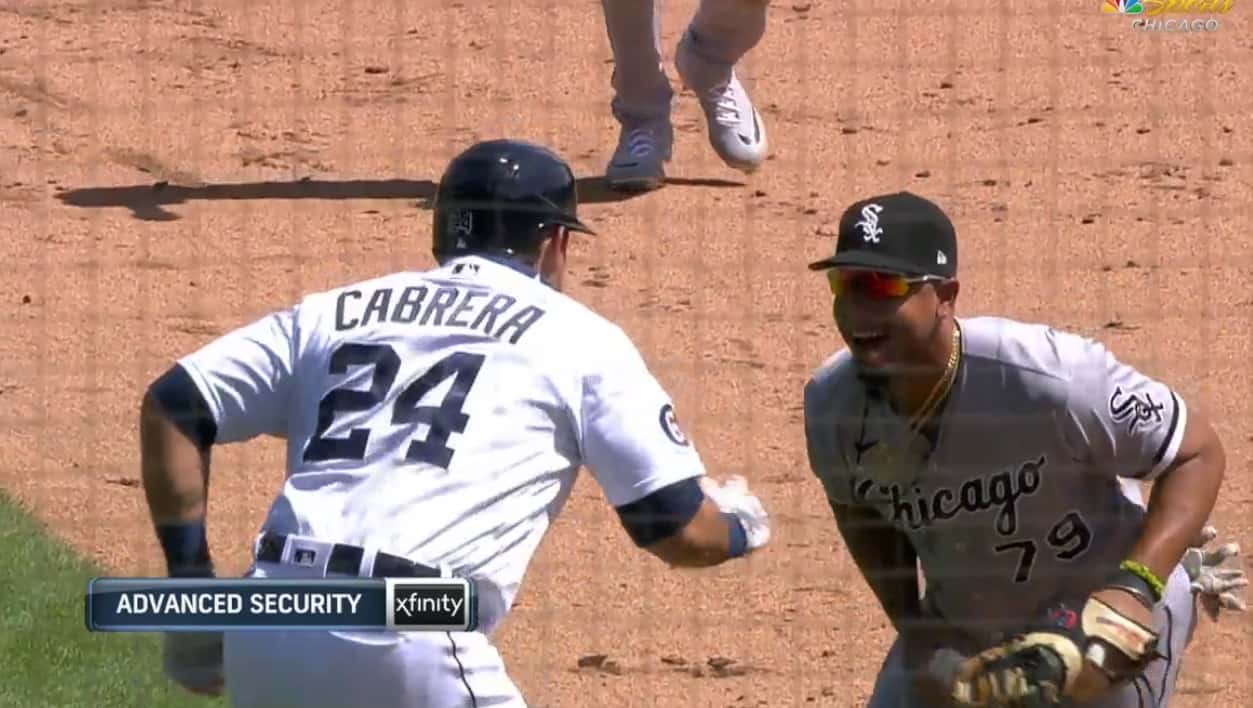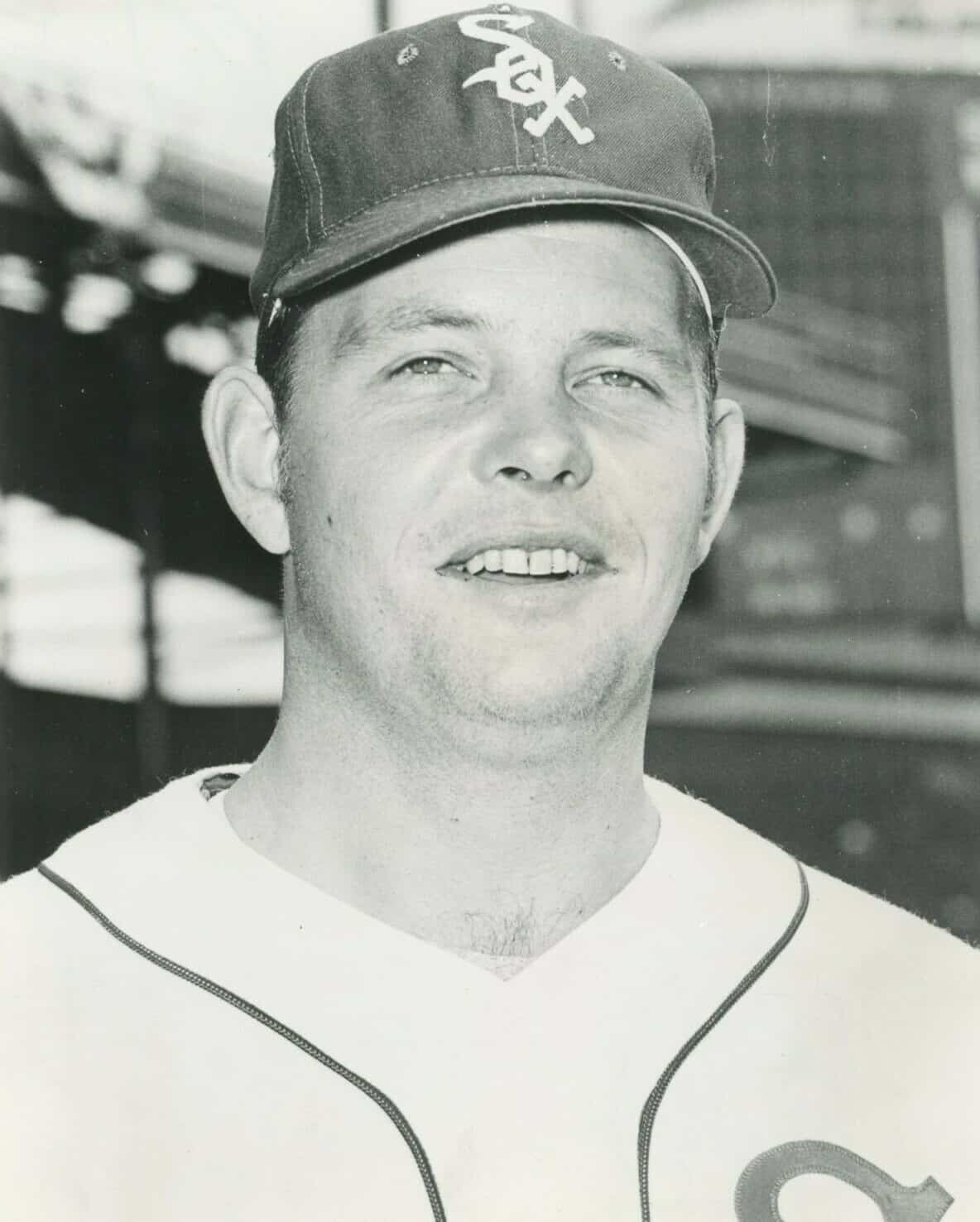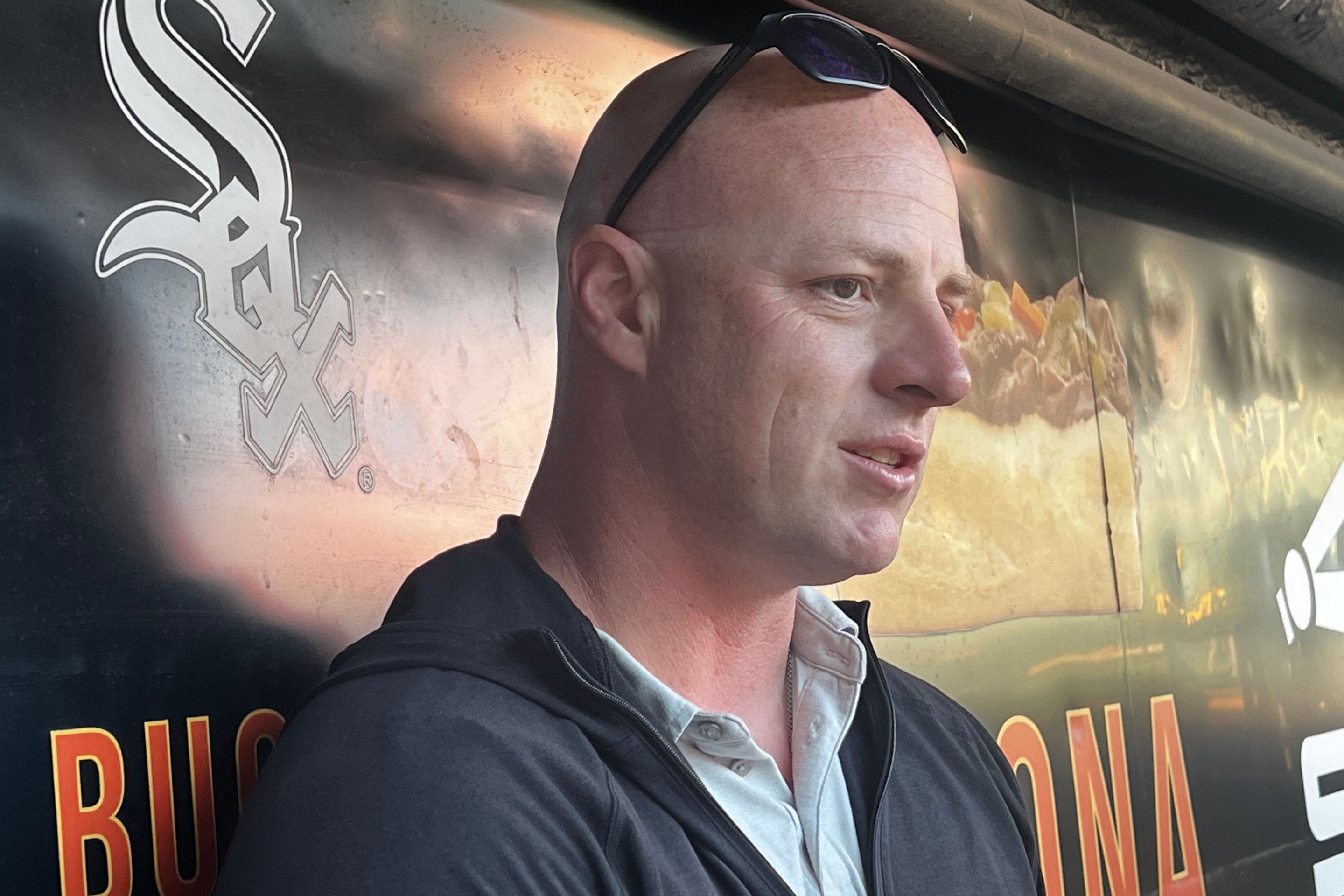From Frank Thomas to Paul Konerko to José Abreu, the White Sox have an enviable legacy of first base production that's celebrating 30 years in business. They've combined for 1,062 homers, 18 MVP finishes and 14 All-Star appearances between them.
There's a trade-off with such stability, which is their plodding, righty-righty profiles leave a lot to be desired defensively. Thomas struggled in all facets, Konerko's range was defined by how far he could topple to either side, and Abreu needed a lot of work to escape "liability" status.
It's a matter of priorities, and the results have generally been in the White Sox's favor. This template of first-base production also makes it a lot easier to appreciate defensive excellence at first base whenever the team has stumbled into some.
Right now, it feels like Abreu's in the middle of a hot streak at first base. He added another highlight to his reel on Wednesday by faking out Miguel Cabrera for a 3-unassisted double play.
And it's one of those videos that can appreciated on a per-frame level.
Double plays that start with "3" have been an increasingly prominent feature of Abreu's game. That was fourth such twin killing on a ground ball to first this year, which means the Sox are tied with San Diego for the league lead. It's a skill that Abreu has turned into an artform, especially over the last two seasons.
- Since 2019: 20 (first in MLB)
- Since 2018: 28 (second in MLB)
- Since 2017: 36 (t-third in MLB)
Dylan Cease has benefited from it in particular. He was on the mound for the antics with Cabrera on Wednesday, which marks the third straight start that Abreu has started a double play for him. The one against the Royals on Aug. 2 was easy...
... but this one against Cleveland last Friday on Francisco Lindor involved a return throw, and it erased the first Cease leadoff walk of many on the evening.
* * * * * * * * *
Abreu's artistry -- or, in some cases, his success despite the aesthetics -- hasn't been limited to this particular skill. He had a really good scooping day at third on Tuesday, with Tim Anderson making him stretch to complete difficult plays, and Yoán Moncada forcing Abreu to contort his body to avoid indefensible errors. Look up the "abreu-gem" tag in the game recaps here, and we've logged a few more plays that we might not count on him making:
- Aug. 12: A basket catch by the tarp
- Aug. 3: A basket catch by the dugout
- July 31: Smothering a potential double down the line
- July 29: Smothering a shot near the bag
- July 27: A 3-6-3 that stranded a runner on third
The lone error was a dropped catch on a high throw by Leury García, which was a play he should have made, but one that was overshadowed by Eloy Jiménez having a cartoon-villain-grade difficulty escaping a simple net.
By and large, it feels like some of the best glovework we've ever seen from Abreu, and it might be. You're just never going to find the evaluations to be unanimously glowing.
| Metric | 2019 | 2020 | Per 150 |
|---|---|---|---|
| UZR | -1.9 | -0.7 | -7.5 |
| DRS | -4 | 3 | 23 |
Sample size has a lot to do with it. An entire season often isn't a great indicator of defensive stability, and Statcast and Baseball Prospectus haven't even rolled out their defensive metrics for 2020 yet.
Abreu's particular numbers aren't the point. It's more that a stretch like this shows that his ceiling for the analytical idea of value is limited. When you look at the highlights, all of the balls are hit where he's already standing. That he's converting them into outs speaks well of his hands and arm, but since it's been decades since we've seen a regular with range at first, we can be lulled into treating acceptability as excellence.
And then you see a play like the one Evan White made in foul territory, and the imagination starts expanding again.
In defense of the team's first-base defense, the White Sox have tried to shore up the position over the past decade alongside Abreu. It's just that the White Sox's solutions were Adam LaRoche and Yonder Alonso, and neither hit well enough to play in any form. If that's the front office's idea of help, that's why Luke edited out the stories he heard about bad Samaritans.
Abreu's limited range is why he's never going to light up WAR boards. Combine it with his aggressive approach at the plate and the White Sox's self-pantsing in the "R" part of "WAR," and I've generally evaluated Abreu off that scale as a result. The answer to the first question of the exam ("Is he hitting?") accounts for 80 percent of the grade, and Abreu's underwater right now. He's hitting .263/.296/.438, and he's threatening to lead the league in GDPs for the second year in a row. If he doesn't pull up his launch angle, his noteworthy hard-hit rate only means he gets thrown out at first base by larger margins.
Defensively? He's fine. There's better, but we've seen worse, and with his throwing, there's at least one thing he does pretty well. Make of that what you will, because I've realized while writing that Hawk Harrelson's most ridiculous superlatives involved defense at first base. He had categories for ...
- "The best in the American League at taking plays to first base themselves rather than waiting for the pitcher to get over there"
- "Best you'll see at catching pop-ups"
- "One of the best you'll ever see, on rockets, staying in front of them"
... and Konerko won the last two titles.
Perhaps writing about Abreu's abilities to start a 3-6-3 double play is a byproduct of the urge to find praise for a player who has to be out there. If so, there's non-WAR value in keeping that skill sharp, for whenever Abreu goes, Andrew Vaughn will be there to carry this legacy further into the remainder of a fourth decade, and into part of a fifth.






